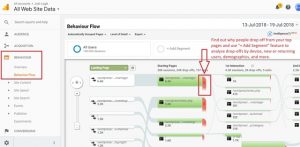US ecommerce growth jumped by more than 30% in 2020 — accelerating the rate of online shopping by two years. Due to the pandemic, businesses of all sizes were prompted to move their operations online and create new ways for their customers to shop. At the time, the shift to ecommerce was a make or break move for many businesses, but as the pandemic has progressed, shifts in consumer behavior have cemented ecommerce as a preferred shopping channel for most consumers. For sellers, ecommerce offers ample opportunity to reach more customers, expand into new sales channels, and grow their businesses. However, that opportunity doesn’t come without regulatory hurdles.
Following the 2018 Supreme Court decision in South Dakota v. Wayfair, states were granted the ability to apply tax to online transactions made within the state regardless of where the seller is located, this is known as economic nexus. Today, more than 43 states, the District of Columbia, and some local governments in Alaska now tax remote sales via economic nexus. Florida and Missouri, the last two states with general sales tax that haven’t adopted economic nexus laws, have economic nexus legislation pending. For businesses expanding their sales online, economic nexus laws can quickly create new tax obligations as they sell into new states and jurisdictions.
To date, enforcement of economic nexus laws has been relatively scarce. However, many states have recently put a stake in the ground signaling to businesses that the unofficial grace period of enforcement is coming to an end. Failure to get compliant with economic nexus laws not only poses audit risk to ecommerce sellers but also has implications for customer experience if your business is charging the wrong amount of sales tax on online transactions.
As online sellers continue to explore new online selling channels, there are a few steps they can take to prepare their business for increased ecommerce sales and minimize sales tax compliance risk.
Understand your nexus
Understanding economic nexus laws and any obligations they may have will be essential in 2021 to avoid audit penalties and disruptions to customer service. Businesses that are used to selling through a storefront will need to ensure that they are not triggering economic nexus thresholds if they are now selling beyond their state borders online. Similarly, it’s important that businesses selling through multiple channels are cognizant of which state’s thresholds they are at risk of triggering since their sales will likely expand.
Another compliance consideration online retailers need to be aware of is marketplace facilitator laws. Since major online marketplaces saw a boost in sales last year, capturing $ 1 out of every $ 5 spent during Q3 of 2020, many ecommerce sellers have included marketplace storefronts in their online strategy. Although almost 40 states have put legislation in place that requires the marketplace to collect sales tax on sales made by third parties, it’s still important to note that the sales made through marketplaces contribute to a retailer’s economic nexus threshold. This year it will be even more critical that retailers are accurately monitoring their sales across all channels.
With all of this being said, understanding nexus isn’t a “set-it-and-forget-it” process. Sales tax laws are inherently dynamic, meaning that they change frequently. For example, last October, Tennessee decided to lower the economic nexus threshold for out-of-state businesses and marketplace facilitators from $ 500,000 to $ 100,000. Some states are also beginning to look at broadening their sales tax base to include historically exempt goods and services due to the impact of the pandemic.
Leverage technology to get compliant
The myriad of sales tax laws can quickly become resource-intensive and financially burdensome for most businesses, especially when managed manually. With more than 13,000 taxing jurisdictions in the U.S. alone, a business that sells to customers across the country has the potential to trigger sales tax obligations in thousands of jurisdictions. And, with nexus laws and boundaries changing every day, manually staying on top of tax obligations can quickly become a full-time job. If your business is managing tax compliance in-house, it’s likely that you have one person or several people spending an ample amount of time per month preparing, generating, and remitting tax.
The patchwork of tax rates, exemptions, deductions, forms, documentation, filing obligations, and enforcement techniques created by taxing authorities make tax compliance well-suited for automation. The technology exists today that allows businesses of all sizes to automate and digitize nearly every finance function — automating tax compliance is no exception.
Tax compliance automation allows businesses to integrate solutions directly into the business systems they are already relying on. From ecommerce platforms to order management systems, sales tax automation software can plug into these technologies to help ensure that the sales tax calculated on online transactions is accurate, as well as facilitate on-time and accurate tax returns each month.
By leveraging technology to automate the compliance process, businesses can keep pace with the changing tide of sales tax rules and rates as their online footprint grows. In addition to mitigating compliance risk, tax automation also enables sellers to increase the efficiency of the tax management process and mitigate disruptions to the customer experience.
The changes in consumer behavior due to the accelerated adoption of ecommerce and cloud technology have quickly increased the need for businesses to have more efficient and flexible operations. Although this digital-first era of commerce has opened the door for new opportunities, it has also created a web of online sales tax obligations that many businesses are facing for the first time. For ecommerce sellers that want to stand out from the competition, mitigate risk, and also save time and money, tax compliance technology should be at the top of the list for changes to implement in 2021.
Digital & Social Articles on Business 2 Community
(26)
Report Post





